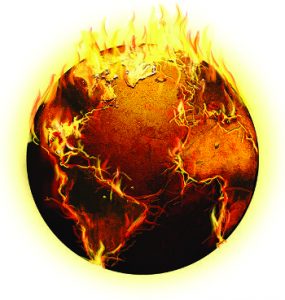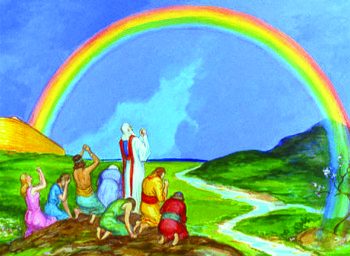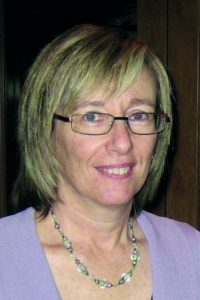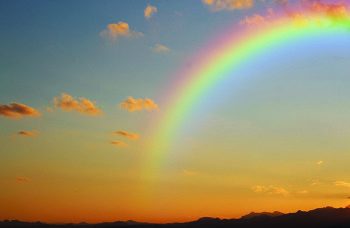Climate Change – A Modern Day Plague
The growing threat of climate change reminds me of two Old Testament readings. The first is a warning and the second is a consolation.
The warning is given in Exodus. When Moses asked the Pharaoh to let the Israelites go, and the Pharaoh said no, God sent nine plagues – water turns to blood, the plague of frogs, mosquitoes, horseflies, death of livestock, boils, hail, locusts and darkness – and the Pharaoh still said “no”.  Finally, after the tenth plague, the death of all Egyptian first-born, including livestock, the Pharaoh finally said, “Get out of here!” I am wondering if we are just as stubborn as that Egyptian Pharaoh when it comes to heeding warnings about climate change.
Finally, after the tenth plague, the death of all Egyptian first-born, including livestock, the Pharaoh finally said, “Get out of here!” I am wondering if we are just as stubborn as that Egyptian Pharaoh when it comes to heeding warnings about climate change.
When scientists first started talking about climate change we doubted them. It was like one of the early plagues God sent to Egypt. Dinner-table conversations debated if man-made climate change was for real. Now, as the climate has continued to worsen, most people recognise that human activity is causing the planet to warm and we need to do something about it. School children are marching for change. In July this year, the news from the Arctic Circle sounded alarming - forest fires burning out of control and Greenland experiencing record levels of melting ice. It sounded like another Egyptian plague. Journalists are now writing about the climate crisis and warn of the point of no return, with metre high sea level rises before the end of the century.
The consolation is found in Genesis. God made a covenant with Noah, “that never again shall all living things be destroyed by the waters of a flood, nor shall there ever again be a flood to devastate the earth” (Genesis 6:11). The sign of the covenant is a rainbow. The rainbow reminds us that we must go forward with the hope that climate change can be overcome. When so many are ringing alarm bells, it is counter-intuitive to say all will be well. But sometimes our faith in God asks us to do just that. Between God and mankind we can hope, through God’s covenant with Noah, that we can avert this potential catastrophe. Innovative thinking, scientific research, political action, collective will, a call to reduce our dependency on coal, oil and gas, a call to better share the world’s resources, a call to being prepared to have less so others can have more, a call of charity towards those in need and a call to prayer are what will prevent, mitigate and help us adapt to climate change.
In 2014 New Zealand contributed 0.17 per cent to the world’s global gas emissions. It is very small, a twentieth of one percent, and most of that comes from animals and agriculture. Even if New Zealand makes it to carbon neutral, it makes little difference to world carbon levels. Furthermore, to get to carbon neutral is far from easy – how to stop animals belching. Why bother? God’s covenant with Noah does not call us to sit back and do nothing, but rather to work towards solutions with hope.
In Laudato Si’, Pope Francis quotes from a Pastoral Letter written by the Bolivian Bishops: “Both everyday experience and scientific research show that the gravest effects of all attacks on the environment are suffered by the poorest”. In New Zealand, we are becoming increasingly aware of our neighbours in the Pacific who are finding their homes starting to disappear under the waves. And it is to New Zealand and others that these nations will turn for assistance.
 As individuals we have choices to make on what we consume and how we live. Our lives have a carbon footprint as well. The care we have in our hearts will be our guide. The hope we have in a better future can be our call to change. In the spirit of St Augustine, who said we should pray as if everything depends on God and work as if everything depends on us, we must try. It is about taking many small steps. The decision to eliminate single-use plastic bags is a start. Protect the environment by not littering; try not to waste food; drive to maximise petrol use; plant a tree; provide charitable assistance to our Pacific neighbours. Each little action becomes a prayer of hope for our planet.
As individuals we have choices to make on what we consume and how we live. Our lives have a carbon footprint as well. The care we have in our hearts will be our guide. The hope we have in a better future can be our call to change. In the spirit of St Augustine, who said we should pray as if everything depends on God and work as if everything depends on us, we must try. It is about taking many small steps. The decision to eliminate single-use plastic bags is a start. Protect the environment by not littering; try not to waste food; drive to maximise petrol use; plant a tree; provide charitable assistance to our Pacific neighbours. Each little action becomes a prayer of hope for our planet.
Even if climate change worsens and we miss the opportunity to keep climate rise below 1.5C, we need to rest in God’s promise to Noah that the world will not be flooded out. What’s more, God knows our stubbornness through and through and, just as with the Pharaoh, he knows our turning point. Our climate plagues seem set to continue, because for all the talk, actions are not on target to meet deadlines. Yet we owe it to ourselves, to the poor and to future generations, to be leaders in our climate response actions. Together with the graces of the Holy Spirit, combined with the good will and efforts of us all, we will make it to the Promised Land of the post climate change world.
Father in Heaven,
help us restore this beautiful planet,
the good Earth,
from all the harmful effects
of greenhouse gases.
Amen.


 Entries(RSS)
Entries(RSS)